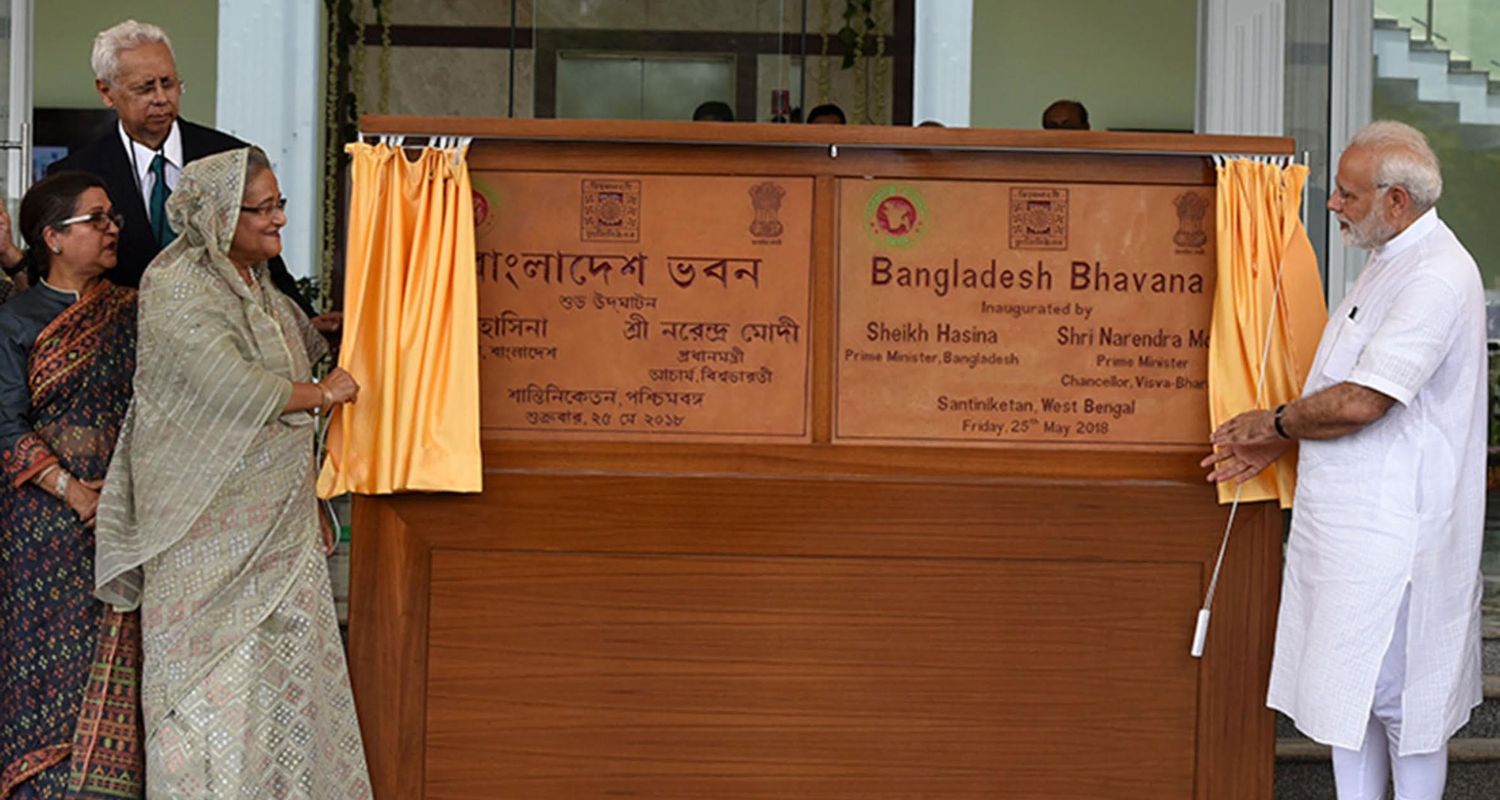On August 15, the death anniversary of Bangabandhu Sheikh Mujibur Rahman, fans in West Bengal were unable to pay their respects. His residence and grave in Bangladesh were surrounded by police, while across the border in Santiniketan, the International Bangladesh Bhavan—built to celebrate the shared history of the two Bengals—remained shut to visitors.
Although Visva-Bharati University’s ‘World Heritage’ campus has reopened to tourists, the doors of the Bangladesh Bhavan have stayed closed for more than a year. The situation has left visitors disappointed, with many fearing that younger generations may gradually lose touch with this important part of history.
Visva-Bharati’s acting public relations officer, Atig Ghosh, clarified, “We have opened the Heritage Ashram for tourists. Discussions are also underway regarding opening the Bangladesh Bhavan.”

The Bangladesh Bhavan, spread over 40,000 square feet on the grounds of Visva-Bharati’s Indira Gandhi National Solidarity Centre, was built at a cost of Taka 40 croreby the Bangladesh government. It was jointly inaugurated on May 25, 2018, by Prime Minister Narendra Modi and then Bangladeshi Prime Minister Sheikh Hasina, with West Bengal Chief Minister Mamata Banerjee in attendance.
Hasina herself designed the structure and her government allocated an additional Taka 10 crore as a fixed deposit for the centre’s long-term maintenance, with Visva-Bharati given charge of its upkeep.
Also Read: Bangladesh-Pakistan axis puts Bengal on alert ahead of PM's visit
Inside the Bhavan stands a large sculpture of Mujibur Rahman, along with historic photographs, documents and exhibitions chronicling the intertwined histories of India and Bangladesh. The complex has a modern exhibition hall, library and theatre for research and cultural events.
However, the political turmoil in Bangladesh last year has cast a shadow on the centre. Following Hasina’s ouster on August 5, 2024, the Bangladesh Bhavan has remained closed since then.
Scheduled programmes—such as a documentary screening on Mujibur Rahman—have been indefinitely postponed. Tourists can only view the building from outside its gates.
Expressing disappointment, Shalini Mitra, a tourist, said, “I brought my mother and my sons here to show them the Bangladesh Bhavan. But I have to return disappointed. I was deprived of the chance to share our spiritual connection with Bangladesh.”
Also Read: Awami League reveals agenda to reclaim ‘Mujib-Hasina Bangladesh’
Echoing the same, another visitor, Abha Mitra, said, “My father was a doctor in Bangladesh. We moved here during difficult times. Today, I feel regretful that I cannot see the Bhavan.”
Nandini Mitra voiced concern for future generations. “We tell our children that this Bhavan represents the union of the two Bengals. But if we cannot take them inside, how will they learn our history?” she asked.
Every year, around 40 to 50 Bangladeshi students join Visva-Bharati, particularly in Kala Bhavan, Sangeet Bhavan and the Bengali Department. Their families and other tourists from Bangladesh also visit Santiniketan, the home of Rabindranath Tagore. For them, Bangladesh Bhavan is a vital cultural bridge. Its closure has therefore left many feeling a loss of belonging.
Also Read: Bangladesh hands Teesta project to China, India raises concerns


